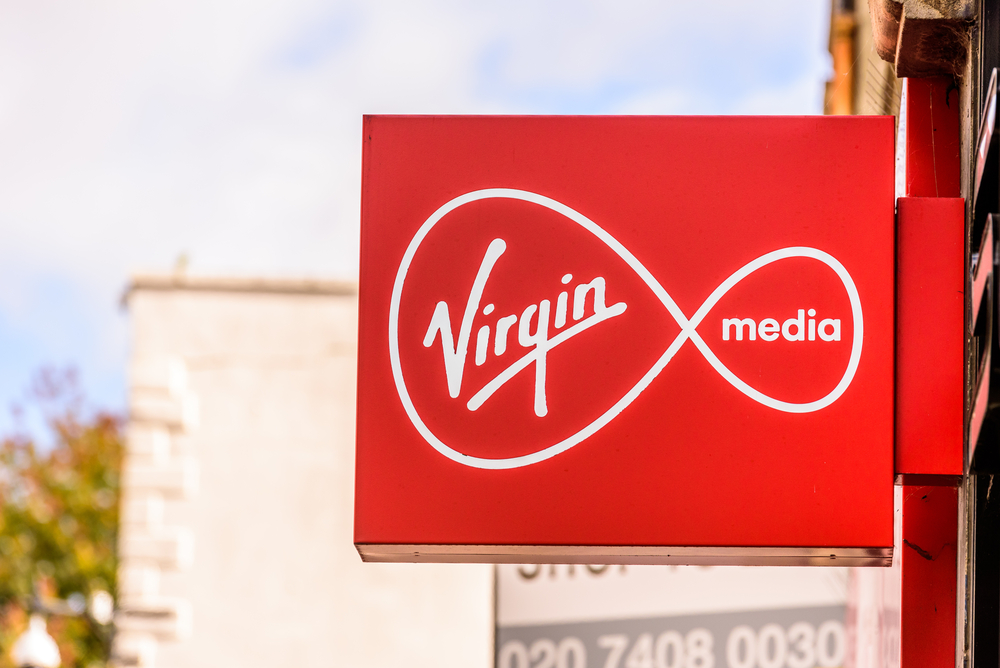Virgin Media can now deliver 8Gbps hyperfast broadband
Using its existing infrastructure, Virgin Media has successfully trialled network speeds over 200 times quicker than the national average


Virgin Media has successfully trialled 8Gbps hyperfast broadband using its existing infrastructure running new Ethernet Passive Optical Network (EPON) technology.
The network provided symmetrical connectivity which means simultaneous uploads and downloads performed at speeds more than 200 times the national UK average.
The speed was independently verified by SamKnows, Ofcom's official speed test partner, which had to develop a bespoke speed testing tool capable of accurately verifying the speeds on the new network.
The test was carried out in the village of Papworth in Cambridgeshire with around 50 of virgin's customers selected to trial the network with previously unheard of commercial speeds.
Virgin Media has been known to test previous technology in the village, such as its 1Gbps trial in March 2018.
"We measure broadband speeds around the world and this trial has been delivering speeds far in excess of what we typically see in customers' homes, said Sam Crawford, founder and chief technology officer at SamKnows.
"With Virgin Media's hyperfast multi-gigabit connection, ultra-high definition 4K films and TV programmes, very large files and 360-degree videos can be downloaded and uploaded almost instantaneously, even with multiple devices using the connection simultaneously, he added."
Sign up today and you will receive a free copy of our Future Focus 2025 report - the leading guidance on AI, cybersecurity and other IT challenges as per 700+ senior executives
In terms of real-world use cases, the following speeds will be achievable if the network is rolled out nationwide:
- Download a 5GB film in 5 seconds
- Download a 20GB 4K film in 20 seconds
- Download a 99GB video game in less than 2 minutes
- Upload 3GB of photos in 3 seconds
The news comes around growing thoughts that 5G, which is just on the horizon, could eclipse cable internet and become the primary network of smartphone and homeowners alike.
"It is important to address the exponential growth in data traffic as people own more devices and are accessing a wide range of services. The biggest use case is video services which will proliferate due to HD, 4K and eventually 8K streams," said independent telco analyst Paolo Pescatore to IT Pro.
5G will only deliver around 1.4Gbps at a 1ms latency, still way above the national average broadband speed for the UK which sites at 16.51Mbps. So Virgin could be trying to keep cable broadband alive in the UK with its superior speeds; but do we even need internet that fast?
Pescatore also raises concerns about the demand for multi-gigabit speeds in the UK.
"There has been something of a fibre frenzy recently and there is a clear argument to upgrade to fibre but will people notice the difference [between 1Gbps and 5Gbps]?" he asked, speaking to the BBC.
It's clear that telcos need to future-proof their networks in order to keep with advancements and increased demand as a result of more connected devices.
Whether fibre broadband will continue to be widely adopted in the next five years is uncertain, but it sure would certainly be beneficial to never see a buffering video ever again.

Connor Jones has been at the forefront of global cyber security news coverage for the past few years, breaking developments on major stories such as LockBit’s ransomware attack on Royal Mail International, and many others. He has also made sporadic appearances on the ITPro Podcast discussing topics from home desk setups all the way to hacking systems using prosthetic limbs. He has a master’s degree in Magazine Journalism from the University of Sheffield, and has previously written for the likes of Red Bull Esports and UNILAD tech during his career that started in 2015.

